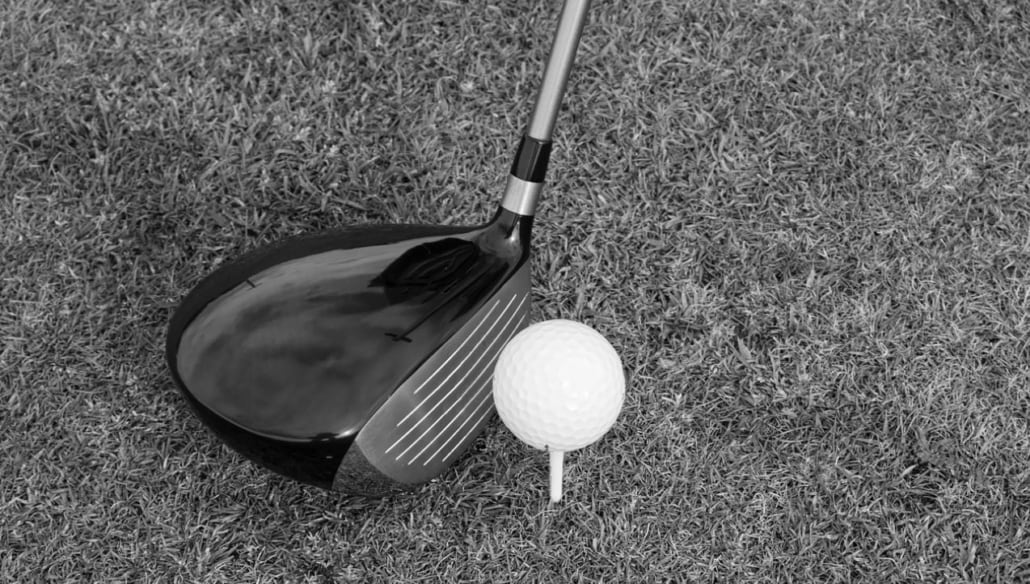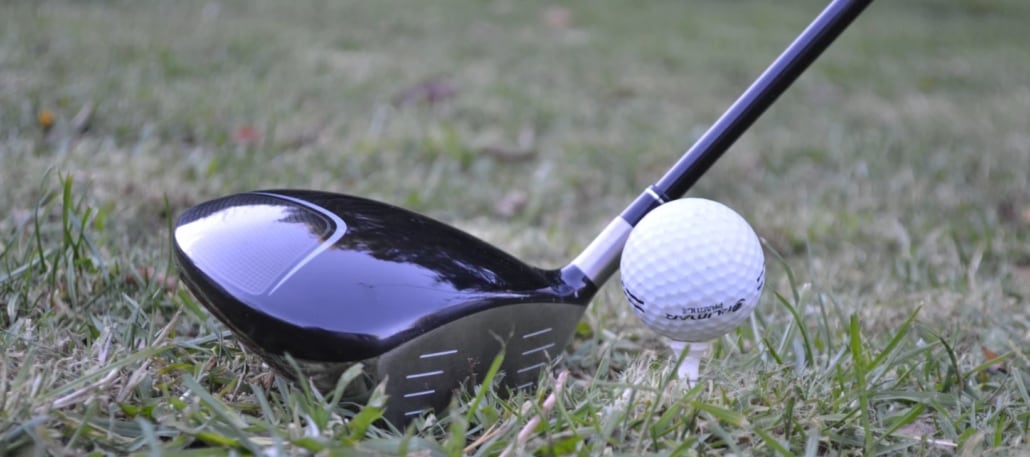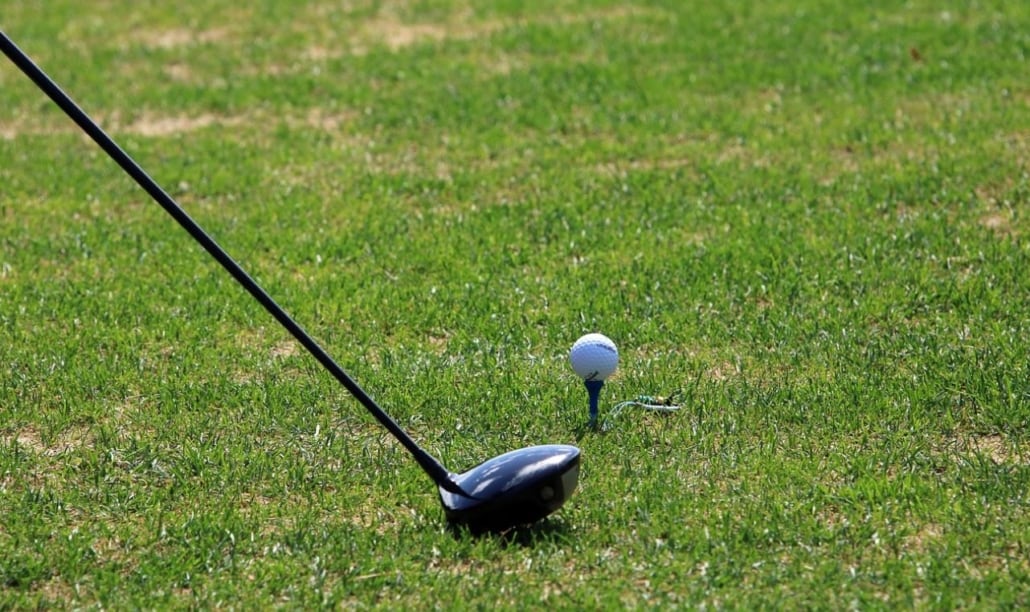Should You Use Regular or Stiff Shafts for Driver Distance
For many golfers, the stiffness of their shaft is something they like to boast about. They love to tell people that they went for a custom fitting session and were told they should use something a bit stiffer because they swing so hard. Is this always a good thing though?
With so many people still buying clubs without being fitted for them, this is a factor that you really need to consider before buying a new driver. Today we want to consider if a regular or stiff driver shaft is best for you.
It is important to mention from the outset that every golfer is different and so many of these ‘rules’ will not apply to you. It is absolutely in your interest to get on a launch monitor and have an expert help you with the fit that you need for your swing.
Does shaft flex affect driver distance?
Yes and it is really important you get your flex right. In a study published in Sports Biomechanics, players were asked to hit identical driver with differing shaft flexes. The flex was hidden to everyone involved and the results were staggering. Not only was clubhead speed (which directly influences distance) affected in most players, loft angle was affected in a quarter of them and lie angle in all.
This means that getting the wrong flex of shaft means that you will give up distance and control of the ball with your driver.
Who benefits from a stiff shaft?

A good tip for working out what flex you need is the 150-yard test. If you can hit an 8- or 9-iron 150 yards, comfortably, then a stiff shaft is for you. This means that you will have a driver swing speed of around 100 mph and you will see the benefits of a stiff shaft.
You will know this is right for you because the club will be performing and you won’t feel the need to swing it as hard as you can to get the ball up in the air. A club that is too stiff will tend to produce low slices with bad contact.
Who benefits from a regular shaft?
As the name would suggest, most golfers out there should be using this but ego often gets in the way of that, especially in male golfers. If you use a 6- or 7-iron to hit that 150 yard shot then a regular shaft will be the best for your game. By using a shaft-flex that is right for you, the club will work better and you will gain distance with much less effort.
The ultimate benefit is that this will lead to more consistency and fewer misses. One exception is that many golfers would benefit from a stiffer shaft in their wedges. Most wedges come with a less flexible shaft as it can improve control for your shortgame.
Does shaft flex affect accuracy?
As you’ve read above, there are a number of ways that shaft flex can affect the accuracy of your golf shots. Having a club that suits your swing means you will be more relaxed and consistent hitting the ball, that’s a huge advantage in terms of accuracy. Also, a stiffer shaft tends to help reduce dispersion as the club can move less through impact and so be more consistent.
Also, think about it, the shaft is the engine of your golf club so inefficiencies here will lead to reduced accuracy. There’s also nothing to stop you splitting your set, you could go for accuracy on the shorter clubs and have less flex in your scoring clubs then more flex in your longer clubs. This is the beauty of custom fitting. My last set of irons was half-blades and half cavity backs, why not be bold and inventive!
How can I find out my swing speed?
It’s never been easier to find out these vital statistics of your golf swing. Go to almost any pro or shop that offers custom fitting and they will have some sort of instrument that can give you this number. Think of this as your starting point.
It is very important to mention at this point that even though you have a swing speed that should perform in a stiff shaft, a regular shaft may help you so try some and check your numbers.
Be open-minded. Like almost anything in golf, there are no hard and fast rules so sometimes certain regular shafts can perform well with high swing speeds. Your tempo and how you load the shaft has an effect on what flex you need so speak to an expert about this too.
What happens if my driver shaft is too stiff?

The ball flight, as already mentioned, will tend to be low and left. You will feel that the club has no life to it and that you have to work very hard to get solid contact. It will generally just not feel good. Most importantly, you won’t get the clubhead speed you deserve and you will miss fairways.
As you get older, there will come a point when you lose some athleticism and need to get a bit more flex in your shaft. This will give you a boost in your swing and will feel great when you do it.
What happens if my driver shaft has too much flex?
In this case, you will tend to hit high slices. The club will feel a little too whippy in your hand and you will feel that you don’t have as much control of the head as you should have. There can be the benefit of making you slow down your swing to 80% effort though so some may even start to benefit when they make this realization. Golf really is a complicated mistress.
Should a beginner use a regular or stiff shaft?
I would say here that for the majority of cases, a beginner should be using a regular flex shaft. This will enable the golfer to learn a good tempo and to build his/her swing speed up slowly as they improve their technique. Occasionally someone from another sport like hockey or baseball will take up golf and they will have a fast swing that needs re-purposed for golf, these people may require a stiffer shaft.
Can I use different shafts on different clubs?
You absolutely can and many of you should. For example, my driver has an extra-stiff shaft from Oban but my three wood is loaded with a stiff shaft from Mitsubishi. This is a mix that works really well for me and I tried many options on launch monitors before I committed to adding them to the bag.
For proper golf gear-heads like me, shafts are a subject of great excitement. Don’t ask me about them at a dinner party, I warn you, you will be bored. There are just so many out there to try, you don’t need to commit to one flex through your whole bag.
What will happen if I shorten my driver shaft?
Firstly, and most importantly, you really shouldn’t cut a shaft down unless you absolutely know what you are doing and how to balance it out after the cut! You could ruin the performance entirely and waste the club. That being said, many top golfers these days use shorter driver shafts, so why do they do that?
Think of your golf club as a lever, the longer the lever the more power you can generate with less effort. This is all well and good but that will mean that you tend to lose some accuracy. A shorter shaft will be a little stiffer, again think of the lever analogy, but it can actually lead to increased distance as well as accuracy. Shorter clubs are easier to use so you will hit more shots out of the middle which means longer straighter drives.
Is a heavier shaft the cure for a dreaded slice?

This question touches on a whole new aspect of shaft-fitting that your custom-fitter will be thinking about, shaft weight. I told you that this was a complex issue, we are really just touching the surface too. The weight of your shaft can have obvious effects like clubhead speed (usually the lighter the shaft the faster you can swing it), but it can also have an effect on something called torque.
Torque is how much a shaft resists twisting during the golf swing. This feature has a huge role to play in how easy it is to deliver the clubface square through impact and therefore how accurate it will be. This isn’t really something you need to know but your pro or fitter will be well-aware of it.
What driver shaft length does Rory McIlroy use?
Rory is one of the finest drivers of a golf ball in the modern game, he hits it far and he hits it straight. He is currently using the TaylorMade SIM driver which is new for 2020 and he has Mitsubishi Kuro Kage 70 X shaft in it. Trust me, this thing can keep bridges up it is so stiff!
Rory uses a shaft-length of 45.5 inches and the PGA TOUR average is 44.5 inches. When it comes to shaft-length, you should use the longest shaft that you can control consistently. This will give you the best balance between distance off the tee and accuracy.
What shaft does Tiger Woods use?
One of the things about Tiger is that he isn’t one for changing equipment often. There is a story out there that Nike were building a new driver for him and they offered him four “identical” clubs. Tiger claimed that he preferred the “heavier one”. This stumped the techs as the shafts were exactly the same across all clubs. They went back to the lab and it turned out that the “heavier” shaft was the equivalent of two cotton balls heavier!
Tiger knows his equipment better than you know yourself! For almost all of his career he has used Mitsubishi Rayon shafts. This year he remains loyal to this brand with a TaylorMade SIM driver loaded with a Mitsubishi Diamana “White Board” TX (tour extra-stiff).
Are heavier shafts stiffer?

Heavier shafts don’t need to be stiffer, however, the extra weight will make them require higher clubhead speeds in order to work efficiently which has a similar effect to less flex. Shaft weight is about feel for many. Personally, I play a heavier shaft in my driver because I love the feel of it, in my irons I have a lighter shaft because they are generally heavier clubs and I like the feel that that gives me. As you try more clubs and set-ups, you will start to learn what you like and it will help you make your choice.
Do heavier drivers hit the ball farther?
No, not necessarily. Whilst this is a heavier object to strike the ball with and that should make it go further, you have to balance your swing speed with this weight. For many golfers a lighter shaft will allow them to generate higher clubhead speeds.
Like everything in this article, your swing is unique and none of these rules are hard and fast. Get fitted and learn what you need specifically. By trying different products and combinations you will find something that gives you the best performance.
Conclusion
The more you learn about golf shafts the more complicated it can seem, thankfully there are people out there that are real experts on this and are here to help you. Custom fitting is now available to all golfers and you should take advantage of it when buying new gear.
When it comes to what club set-up is best for you, it really is quite simple, whatever the data says is best is best. Don’t worry about ego or hearsay rules that exist out there, just put faith in the number the launch monitor shows you and what feels best in your hands. With almost everything in golf, confidence is key and if something feels good to you and the data is good, you’ve got your club!




